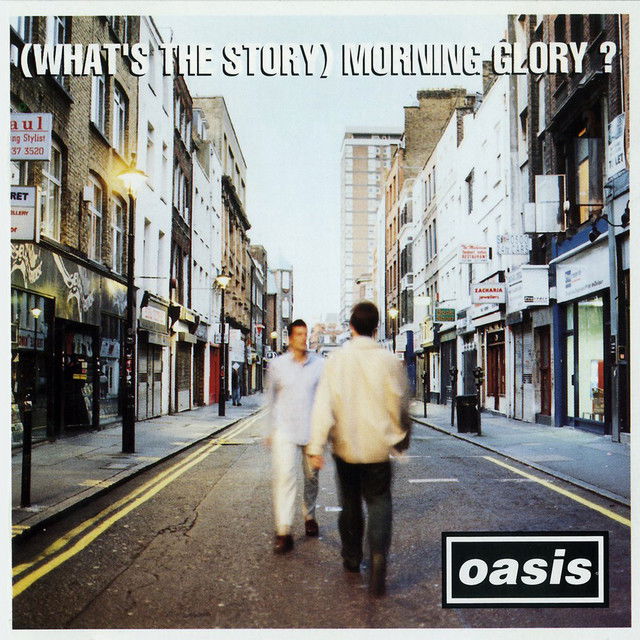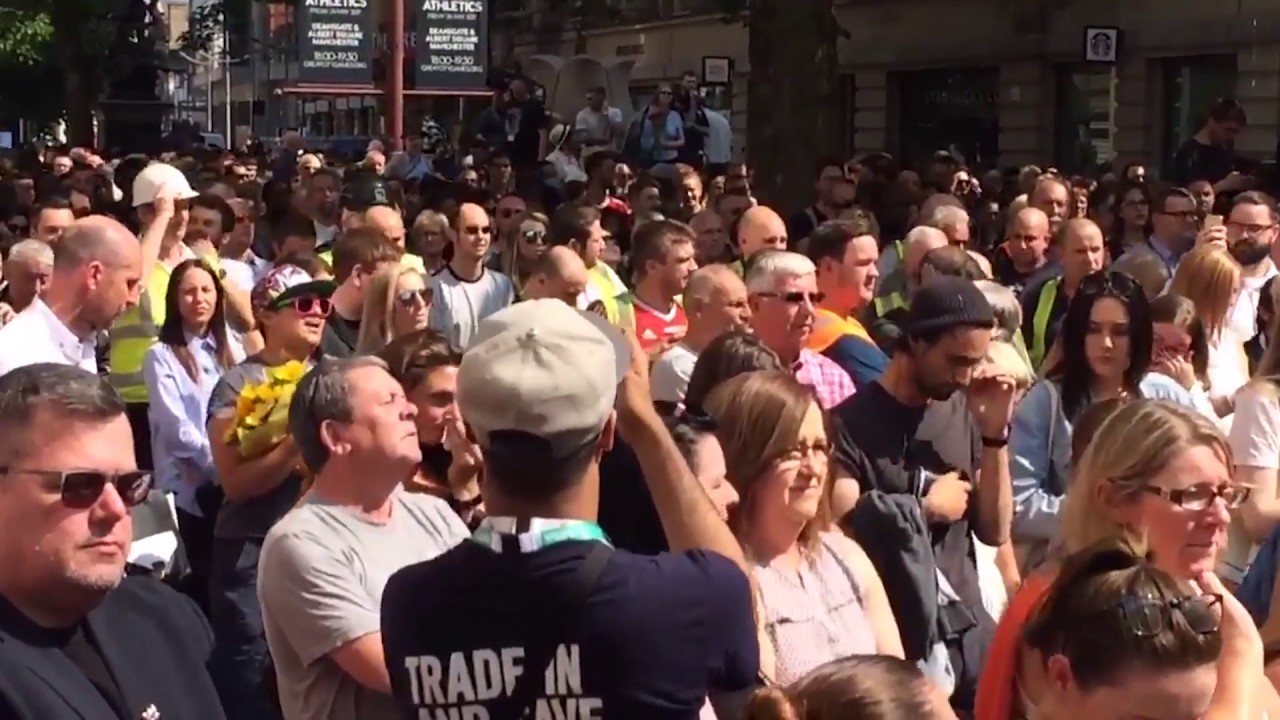Song Stories: Oasis: Don't Look Back in Anger
Few songs define a band or a generation quite like Oasis’s 'Don't Look Back in Anger'. Released in 1996 as the fifth single from their second album, '(What’s the Story) Morning Glory?', it marked a defining moment for the band in more ways than one.
For the first time on a single, Noel Gallagher stepped out from his usual spot as the band’s guitarist and songwriter to take centre stage as vocalist. In a group fronted by Liam Gallagher’s unmistakable snarl, it was a bold move but one that paid off. Noel’s delivery gave 'Don't Look Back in Anger' a tender, introspective sincerity that Liam’s swagger wouldn’t have suited. It revealed another dimension of Oasis and quietly signalled Noel’s potential future as a frontman in his own right.
From the opening piano chords, it’s clear the song wears its influences proudly. The intro is a direct homage to John Lennon’s 'Imagine', and Noel has never hidden that. The Beatles and Lennon in particular were guiding lights in his songwriting. But the Lennon influence runs deeper still. One of the track’s most curious lines “’Cause you said the brains I had went to my head” — is lifted directly from a 1970 Lennon interview with Rolling Stone, where he reflected on fame and ego with disarming honesty. For Noel, it was the perfect lyrical fragment to thread into a song about pride, regret, and letting go.
While 'Wonderwall' may have become the band’s most iconic chart hit, it’s 'Don't Look Back in Anger' that became their true anthem not just a favourite, but a moment of collective release. From the first chorus, it transforms into a chant. At Oasis gigs, it was the singalong: arms raised, beers in the air, voices hoarse with emotion. Noel himself has said that at times the audience was so loud, he didn’t need to sing at all.
That legacy only deepened after tragedy. Following the 2017 Manchester Arena bombing, mourners at a city centre vigil spontaneously began to sing 'Don't Look Back in Anger'. In that moment, it became more than a rock song it became a symbol of defiance, unity, and the unbreakable spirit of Manchester. People weren’t singing out of nostalgia. They were singing because they needed something that made sense something familiar, powerful, and healing. When politicans, and the powers at be could not provide the help and support. Manchester rallied around a song.
Even after Oasis split in 2009, the song never left Noel Gallagher’s side. With his solo project, Noel Gallagher’s High Flying Birds, he has used it to close almost every live show. The arrangement has evolved sometimes stripped back, sometimes grand and orchestral but its impact remains the same. It’s become his way of saying goodbye, of sending the audience home on a high. And now, in 2025, with the long-rumoured Oasis reunion finally happening, 'Don't Look Back in Anger' stands ready to be reborn yet again.
In Britain, 'Don't Look Back in Anger' has become part of the national furniture. One of those songs woven so deeply into the cultural fabric it feels like it’s always been there. It echoes through football stadiums, fills pub gardens after last orders, and sits permanently on the playlist of every busker, wedding DJ, indie. It’s been sung in joy and in grief, at parties and vigils, in defiance and in remembrance. It’s passed down from siblings, learned by osmosis, blasted from radios and shouted from terraces. And no matter where you’re from whether you grew up with Britpop or discovered the song decades later when that chorus hits, you’re part of something bigger. It’s more than a song now. It’s a unifier. An unofficial British hymn.
Even Noel Gallagher acknowledges this. He’s often joked that the song has been sung back to him so many times, he no longer feels like he even needs to play it. And more seriously, he’s admitted that it no longer feels like it belongs to him. Along with 'Live Forever', 'Wonderwall', and 'Champagne Supernova', 'Don't Look Back in Anger' has transcended its creator. It’s become something far bigger it has absorbed into the emotional and cultural memory of an entire nation, and millions of others around the world.
By the time 'Don't Look Back in Anger' came out in early 1996, Oasis were already on a rapid ascent. Their second album, '(What’s the Story) Morning Glory?', released in October 1995, didn’t just elevate them. It launched them into the stratosphere. With singles like 'Wonderwall', 'Champagne Supernova', and of course 'Don't Look Back in Anger', the album became a global phenomenon and the defining soundtrack of 1990s Britain.
Critics were split, but the public weren’t. The album sold over 22 million copies worldwide. It was raw, melodic, and full of attitude but it also carried emotional weight. It spoke to dreams, heartbreaks, late nights, and the promise of escape. It resonated with everyone, from disaffected teens to hopeful romantics. Suddenly, Oasis weren’t just popular. They were massive.

And that massiveness was never clearer than at their live shows. In April 1996, Oasis played two sold-out nights at Maine Road, home of their beloved Manchester City. It wasn’t just a gig it was a triumphant homecoming. The atmosphere was electric as Oasis, who had grown up just a stones throw away from the stadium, found themselves playing to their own city, with tens of thousands of fans singing every word. The setlist was a mix of Morning Glory hits like 'Wonderwall', 'Roll With It', and 'Some Might Say', alongside fan favourites from their debut album, Definitely Maybe, such as 'Live Forever' and 'Supersonic'. For the Gallagher brothers, this was a moment they had been dreaming about since they were kids, and it felt like a coronation. But even this monumental event was just the warm-up for what was to come.
That August, Oasis headlined Knebworth Park for two nights in front of 250,000 people, a record-breaking crowd for a single band in the UK. Over 2.5 million people applied for tickets — a staggering number that only further demonstrated their cultural dominance. The setlist was a whirlwind of anthems: 'Morning Glory', 'Champagne Supernova', 'Rock 'n' Roll Star', and the unforgettable 'Don't Look Back in Anger', of course. But it wasn’t just the songs that made the Knebworth gigs legendary; it was the sheer size of the event. The air was thick with anticipation, and the crowd’s energy was palpable. The gig wasn’t just an Oasis concert; it was a cultural moment, an era-defining event that made Oasis the most significant British band of the decade. And for those lucky enough to be there, Knebworth was a rite of passage, a memory that’s never been rivalled.
Don't Look Back in Anger' is more than a fan favourite. It’s a turning point, a tribute, a cultural landmark, and a deeply human moment disguised as a stadium anthem. It marked Noel Gallagher’s emergence as a frontman, connected the spirit of Oasis to the soul of Lennon, and evolved from chart hit to national treasure. Whether sung in arenas, on terraces, at memorials or in pubs, the song continues to unite people in the most powerful way music can through shared emotion. And as Oasis reunite in 2025, one thing is certain: when that opening piano riff begins, it won’t just be a song we hear. It’ll be one of the music moments of the decade.
